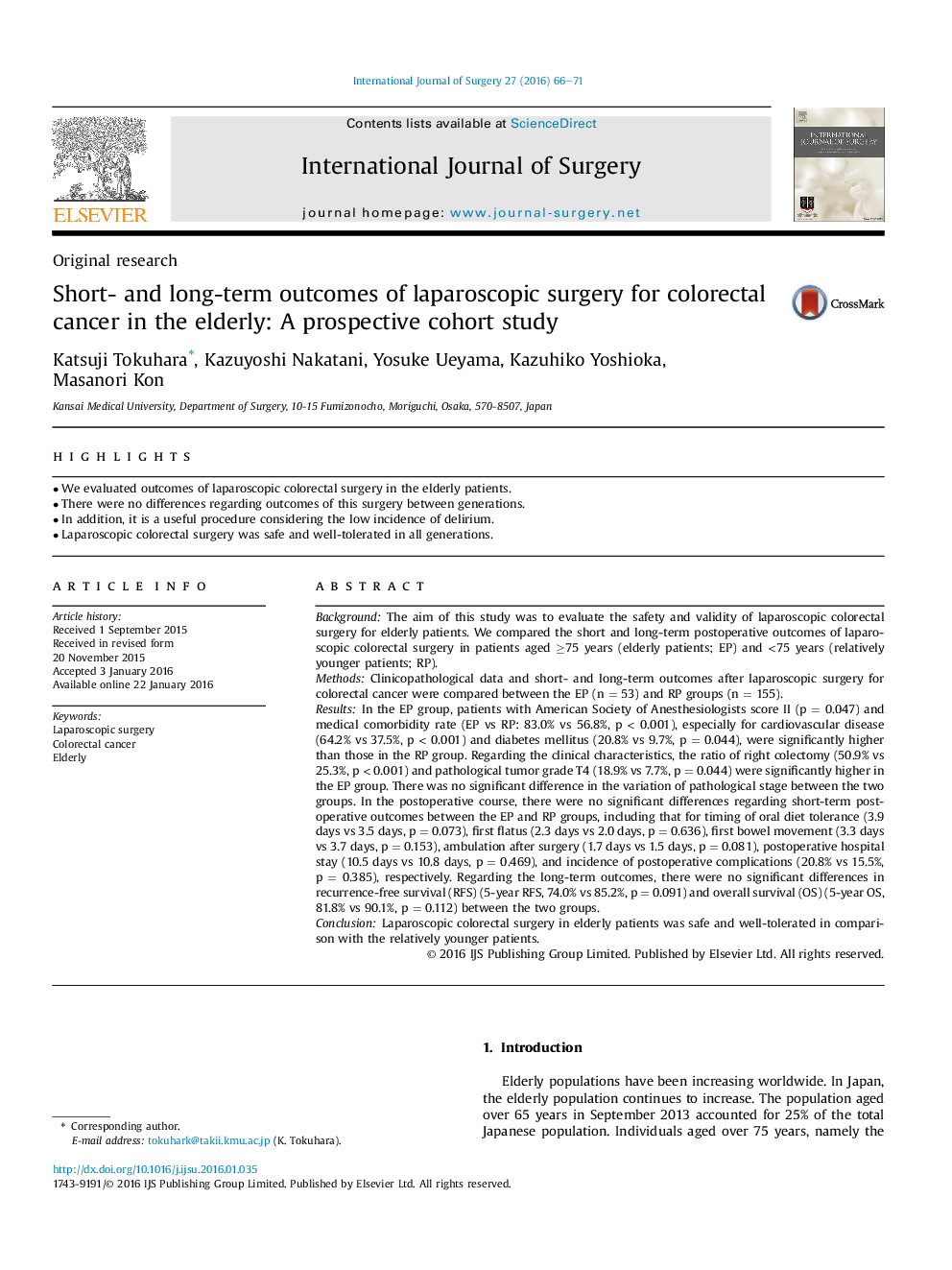| Article ID | Journal | Published Year | Pages | File Type |
|---|---|---|---|---|
| 4285500 | International Journal of Surgery | 2016 | 6 Pages |
•We evaluated outcomes of laparoscopic colorectal surgery in the elderly patients.•There were no differences regarding outcomes of this surgery between generations.•In addition, it is a useful procedure considering the low incidence of delirium.•Laparoscopic colorectal surgery was safe and well-tolerated in all generations.
BackgroundThe aim of this study was to evaluate the safety and validity of laparoscopic colorectal surgery for elderly patients. We compared the short and long-term postoperative outcomes of laparoscopic colorectal surgery in patients aged ≥75 years (elderly patients; EP) and <75 years (relatively younger patients; RP).MethodsClinicopathological data and short- and long-term outcomes after laparoscopic surgery for colorectal cancer were compared between the EP (n = 53) and RP groups (n = 155).ResultsIn the EP group, patients with American Society of Anesthesiologists score II (p = 0.047) and medical comorbidity rate (EP vs RP: 83.0% vs 56.8%, p < 0.001), especially for cardiovascular disease (64.2% vs 37.5%, p < 0.001) and diabetes mellitus (20.8% vs 9.7%, p = 0.044), were significantly higher than those in the RP group. Regarding the clinical characteristics, the ratio of right colectomy (50.9% vs 25.3%, p < 0.001) and pathological tumor grade T4 (18.9% vs 7.7%, p = 0.044) were significantly higher in the EP group. There was no significant difference in the variation of pathological stage between the two groups. In the postoperative course, there were no significant differences regarding short-term postoperative outcomes between the EP and RP groups, including that for timing of oral diet tolerance (3.9 days vs 3.5 days, p = 0.073), first flatus (2.3 days vs 2.0 days, p = 0.636), first bowel movement (3.3 days vs 3.7 days, p = 0.153), ambulation after surgery (1.7 days vs 1.5 days, p = 0.081), postoperative hospital stay (10.5 days vs 10.8 days, p = 0.469), and incidence of postoperative complications (20.8% vs 15.5%, p = 0.385), respectively. Regarding the long-term outcomes, there were no significant differences in recurrence-free survival (RFS) (5-year RFS, 74.0% vs 85.2%, p = 0.091) and overall survival (OS) (5-year OS, 81.8% vs 90.1%, p = 0.112) between the two groups.ConclusionLaparoscopic colorectal surgery in elderly patients was safe and well-tolerated in comparison with the relatively younger patients.
